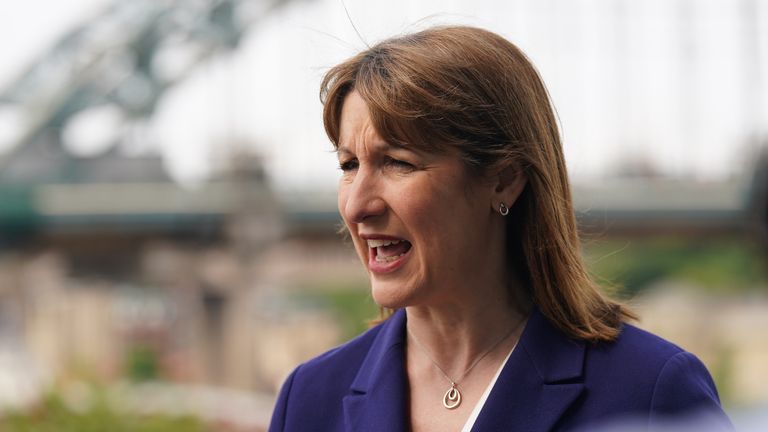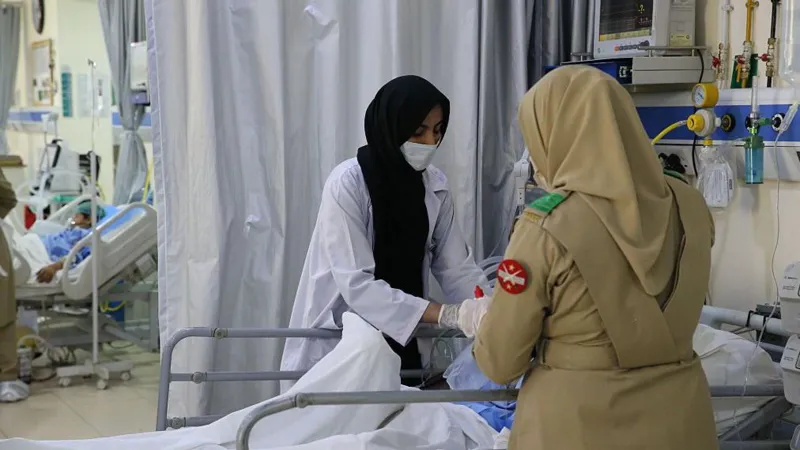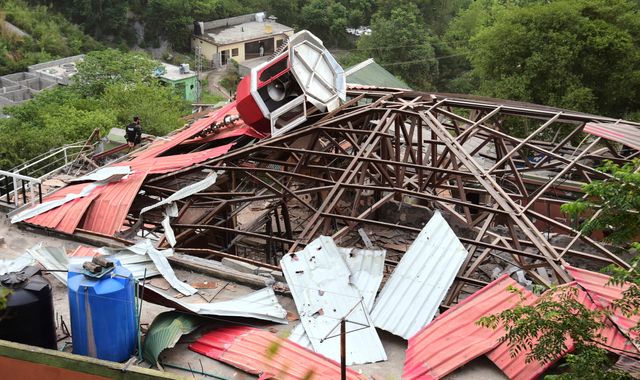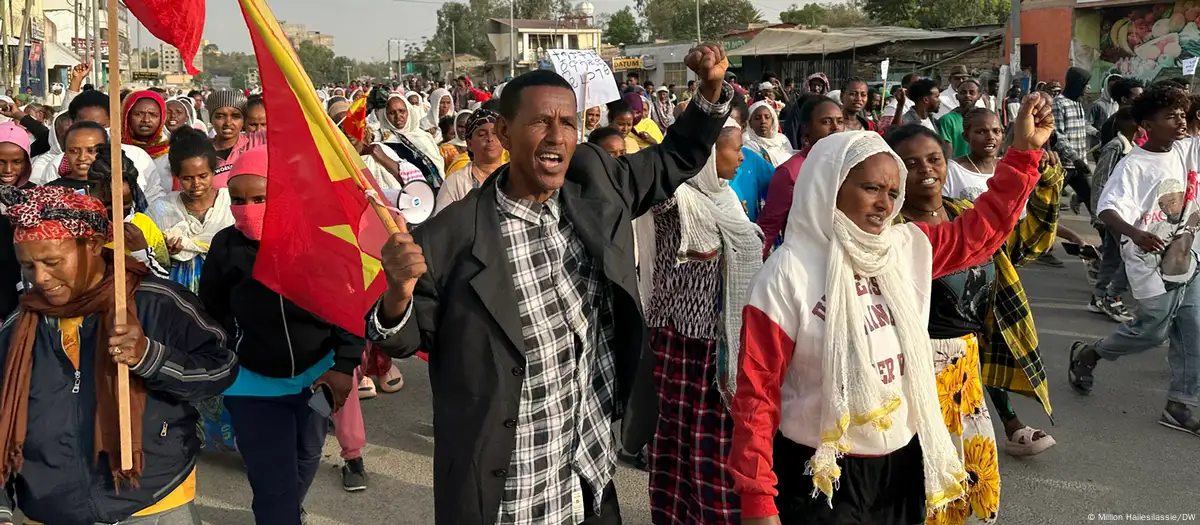Serbia's Vucic claims big election victory for party
Serbian President Aleksandar Vucic has claimed victory in snap parliamentary elections, saying his party is heading for an absolute majority.
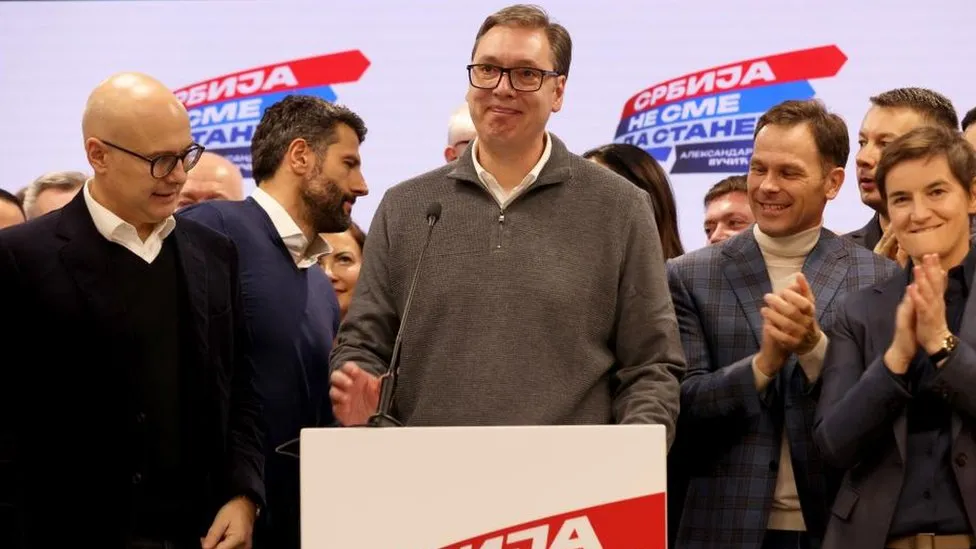
His Serbian Progressive Party, or SNS, is projected to win around 47% of the vote, according to an opinion poll.
Opposition parties under the Serbia Against Violence banner were well behind with 23.3%, the poll suggested.
However their biggest hope is to challenge the president's party in Belgrade in Sunday's local elections.
Results from almost 20% of Serbia's 8,273 polling stations confirmed the ruling party's lead, although projections from the capital put the ruling party's winning margin as little more than three points.
Mr Vucic declared that his "Serbia must not stop" election list was heading for 127 seats in the 250-seat National Assembly.
"My job was to do everything in my power to secure an absolute majority in the parliament," he told supporters.
Wearing a grey sweater, he was flanked on one side by Prime Minister Ana Brnabic and on the other by controversial Bosnian Serb leader Milorad Dodik.
Ms Brnabic had earlier brushed off reports of election irregularities at a number of polling stations in Serbia by non-government observers. Opposition parties referred to the electoral process as dirty.
Serbians voted on Sunday for both the National Assembly and to decide who will control 65 local authorities.
The SNS has been in power since 2012 but there have been three elections in the past three years. President Vucic also told supporters that the party had seen off the opposition challenge in Belgrade, although he said it was unclear for now who would run the capital.
The loose opposition Serbia Against Violence alliance, or SPN, was formed after two mass shootings in May which sparked huge protests. The attacks killed 19 people, including 10 at a school in Belgrade.
The protests grew into demonstrations against President Vucic and his SNS party.
Opposition parties said the massacres reflected a culture of rhetorical and physical violence promoted by the ruling party and its allies in the media.
If the loose Serbia Against Violence opposition coalition does succeed in winning power on Belgrade's city council, commentators say it would give them a big boost and undermine the position of President Vucic and his party.
Almost one in four Serbian voters lives in the capital.
Local observers reported various irregularities, including voters being bussed in from Bosnia-Herzegovina to vote in Belgrade.
The CRTA observer mission gave details of attempted ballot rigging in a number of polling stations.
After voting in Belgrade, Dragan Djilas, a leader of the coalition and a former Belgrade mayor, told reporters that "changes in Serbia have begun."
"People are determined to live... normally without crime and corruptions, without prices going wild."
Serbia is also struggling with high inflation, which hit 8% in November.
Serbia is a candidate to become a member of the European Union, and President Vucic is under pressure from both the EU and the US to normalise relations with Kosovo.
Kosovo declared unilateral independence from Serbia in 2008, and while it is recognised by more than 100 UN members, Serbia has refused to do so - backed by allies like Russia, China and five EU members.
Some 95,000 ethnic Serbs live in Kosovo and those who wanted to vote had to cross into Serbia to cast their ballot.
Serbia has also declined to impose sanctions against Russia over its invasion of Ukraine.
-bbc



